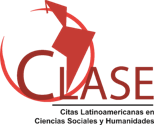MATHEMATICS TEACHERS’ INITIAL AND CONTINUING EDUCATION
reflections and complementary actions
DOI:
https://doi.org/10.18764/2178-2229v29n2.2022.29Keywords:
teacher’s education, mathematics teaching, partnership between university and school, elemen-tary School first years, educational public policiesAbstract
Mathematics remains an anxiety-provoking area for most students going for a bachelor’s degree in Pedagogy, since their Mathematic memories of school history are marked by a mechanical and memory-based learning process of algorithms and formula. After following courses on the foundations and methodologies of Mathematics teaching, they might think otherwise given that graduands usually get in touch with proposals promoting meaning construction while learning mathematics. On the other hand, the teacher in charge does not always have the opportunity of sharing with his/her peers in the school environment what he knows and doesn’t know, his limitations and challenges concerning Mathematics teaching, keeping, if anything, a tech-nical dialogue on official curriculum requirements to prepare his/her planning. This article aims at showing the results of a university extension project whose objective was the joint education of active teachers and students pursuing a bachelor’s degree in Pedagogy along of Mathematics workshop’s planning, execution and evaluation aimed at Elementary School 5th and 6th grade students. The “Mathematics through playfulness” project was guided by studies promoting the link between teacher’s initial and continuing education for the development of teacher’s knowledge, among them Tardif’s (2014) and Nóvoa’s (2009, 2017).
Downloads
References
ALMEIDA, P. C.; BIAJONE, J. Saberes docentes e formação inicial de professores: implicações e desafios para as propostas de formação. Educação e Pesquisa, São Paulo, v. 33, n. 2, p. 281-295, maio/ago. 2007. Disponível em: http://www.scielo.br/pdf/ep/v33n2/a07v33n2.pdf. Acesso em: 22 jun. 2022.
ANDRÉ, M. et al. O trabalho docente do professor formador no contexto atual das reformas e das mudanças no mundo contemporâneo. Revista Brasileira de Estudos Pedagógicos, Brasília, DF, v. 91, n. 227, p. 122-143, jan./abr. 2010. Disponível em: http://rbepold.inep.gov.br/index.php/rbep/article/view/606/587. Acesso em: 22 jun. 2022.
IMBERNÓN, F. Formação continuada de professores. Porto Alegre: Artmed, 2010.
LESSARD, C.; TARDIF, M. As transformações atuais do ensino: três cenários possíveis na evolução da profissão de professor? In: TARDIF, M.; LESSARD, C. (Org.). O ofício de professor: história, perspectivas e desafios internacionais. Petrópolis: Vozes, 2011. p. 255-277.
NÓVOA, A. Firmar a posição como professor, afirmar a profissão docente. Cadernos de Pesquisa, São Paulo, v. 47, n. 166, p. 1106-1133, out./dez. 2017. Disponível em: http://www.scielo.br/pdf/cp/v47n166/1980-5314-cp-47-166-1106.pdf. Acesso em: 22 jun. 2022.
______. Professores: imagens do futuro presente. Lisboa: EDUCA (Instituto de Educação da Universidade de Lisboa), 2009. Disponível em: https://rosaurasoligo.files.wordpress.com/2017/04/antc3b3nio-nc3b3voa-professores-imagens-do-futuro-presente.pdf. Acesso em: 22 jun. 2022.
OLIVEIRA, R. G.; SANTOS, V. M. Inserção inicial do futuro professor na profissão docente: contribuições do estágio curricular supervisionado na condição de contexto de aprendizagem situada. Educação Matemática Pesquisa, São Paulo, v. 13, n. 1, p. 35-49, 2011. Disponível em: http://revistas.pucsp.br/index.php/emp/article/view/5361/4020. Acesso em: 22 jun. 2022.
POWER, S. O detalhe e o macrocontexto: o uso da teoria centrada no Estado para explicar práticas e políticas educacionais. In: BALL, S.; MAINARDES, J. (Org.). Políticas educacionais: questões e dilemas. São Paulo: Cortez, 2011. p. 54-77.
TARDIF, M. Saberes docentes e formação profissional. Petrópolis: Vozes, 2014.
Downloads
Published
How to Cite
Issue
Section
License
Copyright (c) 2022 Cadernos de Pesquisa

This work is licensed under a Creative Commons Attribution 4.0 International License.
A Cadernos de Pesquisa está licenciada com uma Licença Creative Commons Atribuição 4.0 Internacional.




















